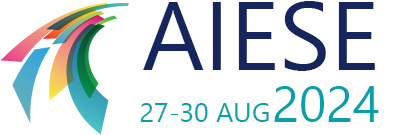ROUNDTABLE
Thursday 29 August, 13:00-15:00 Greece time
TITLE: Artificial Intelligence-empowered Autonomous Software – Moral Dilemmas, Ethics and Regulations, Challenges and Requirements
Chairs: Prof. George A. Tsihrintzis and Prof. Maria Virvou
ABSTRACT:
Artificial Intelligence has been a field of very active and intense research worldwide. The whole field of Artificial Intelligence has recently been revisited to provide critical functionality and significant enhancements in many disciplines, including reasoning, decision making, recommendation, personalization, deep learning, machine learning data mining big data, smartphones, Internet of Things, social robots and in a vast range of application areas in all sorts of human activities and professions. As such, Artificial Intelligence (AI) has accelerated innovation across various fields, profoundly impacting daily lives.
AI-empowered Autonomous Software Engineering incorporates paradigms such as Expert Systems, Machine Learning (including Deep Learning), Artificial Immune Systems, Swarm Intelligence, Fuzzy Logic, and Genetic Algorithms. These advancements promise transformative impacts on science, technology, and society, yet they also present intricate ethical and regulatory challenges.
This interdisciplinary panel consisting of expert researchers representing societal and scientific stakeholders is aimed to highlight and discuss the ethical dilemmas inherent in AI-powered autonomy from different societal and scientific points of view. It addresses biases in decision-making, accountability, and societal implications across diverse domains, fostering dialogue among AI empowered software engineering researchers, experts from application domains, and legal scholars.
The panel evaluates existing regulatory frameworks, identifying gaps in AI governance and emerging trends, emphasizing the need for rapid consensus on critical ethical and moral issues. Technical requirements are examined to ensure transparency, fairness, and human oversight in AI systems, aiming to guide future developments responsibly.
By synthesizing perspectives across disciplines, this panel offers insights into navigating the evolving landscape of AI ethics and regulations. It underscores the collaborative efforts required to shape policies and practices for AI-empowered autonomous software, recognizing its profound and rapid impact on society.
The challenges posed by AI ethics are merged with the technical requirements for ensuring transparency, fairness, and human oversight in autonomous systems. By synthesizing current research and policy perspectives, this panel seeks to contribute to a holistic view of the emerging needs of AI ethics and regulations in several domains, offering insights for future development and governance of AI-empowered autonomous software.
PARTICIPANTS (in alphabetical order):
- -Dr. Miltos Alamaniotis, Department of Electrical and Computer Engineering, University of Texas-San Antonio, USA
- -Dr. Fotini Asderaki, Department of International and European Studies, University of Piraeus, Greece
- -Dr. Peter P. Groumpos, Department of Electrical and Computer Engineering, University of Patras, Greece
- –Prof.-Dr. Stephan Krusche, School of Computation, Information, and Technology, Technical University of Munich, Germany
- -Dr. Aggelos Pantouvakis, Department of Maritime Studies, University of Piraeus, Greece
- -Dr. Vassilios Verykios, School of Science and Technology, Hellenic Open University, Greece
- -Dr. Hinorori Washizaki, Faculty of Science and Engineering, Waseda University, Japan
- D. Research Fellow Konstantinos Deligiannis-Virvos, Norwegian Centre for the Law of the Sea, Law Faculty, UiT – The Arctic University of Norway, Norway
- D. Research Fellow Julie Slyngstad, Law Faculty, UiT – The Arctic University of Norway, Norway
